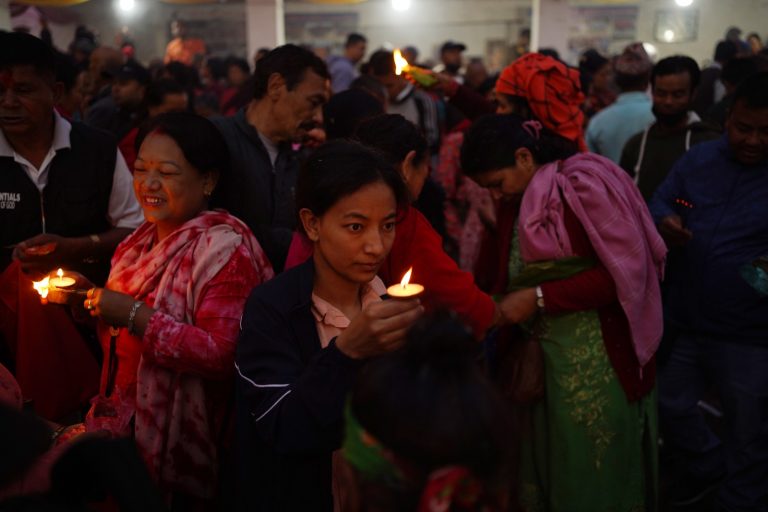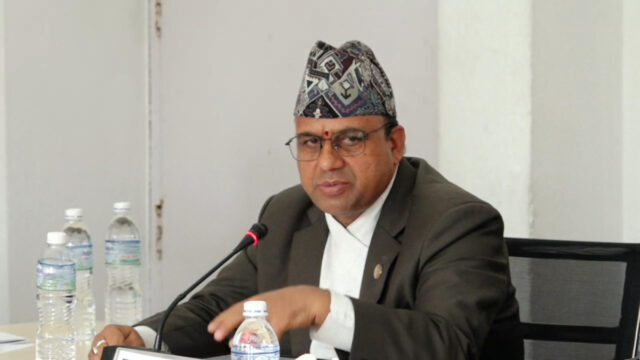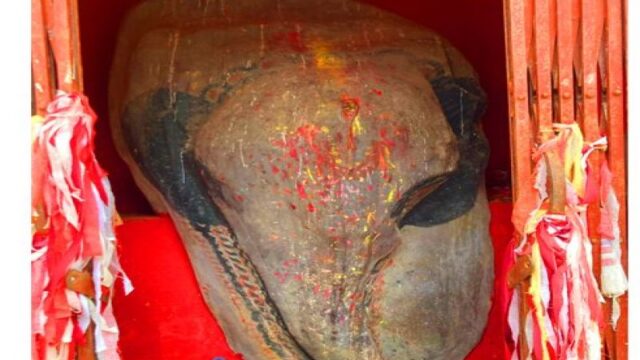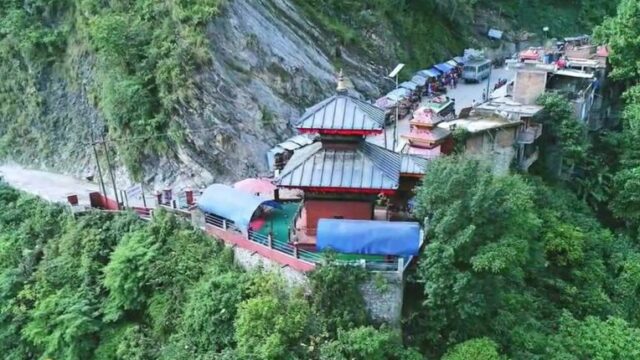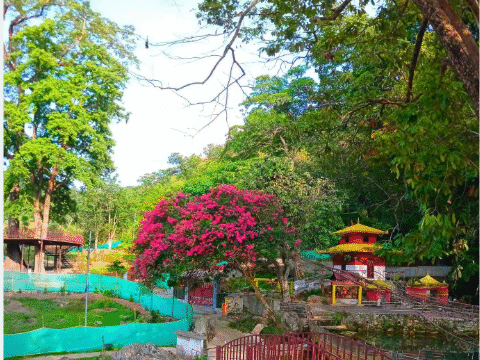In a vibrant display of devotion, thousands of pilgrims have gathered at the revered Matatirtha Kund in Chandragiri Municipality, Kathmandu, to observe the annual Matatirtha Aunsi rituals since early morning today. This sacred occasion, observed on the Krishna Paksha Amavasya (the dark moon day) of Baishakh, is dedicated to honoring mothers and seeking their blessings.
Every year, this significant day attracts large crowds to Matatirtha Kund in Chandragiri-6, where devotees perform religious rituals, including sacred baths and the worship of a statue of the mother goddess. The tradition calls for pilgrims to stay awake the night before, lighting lamps in memory of their mothers, followed by a purifying dip in the kund at dawn.
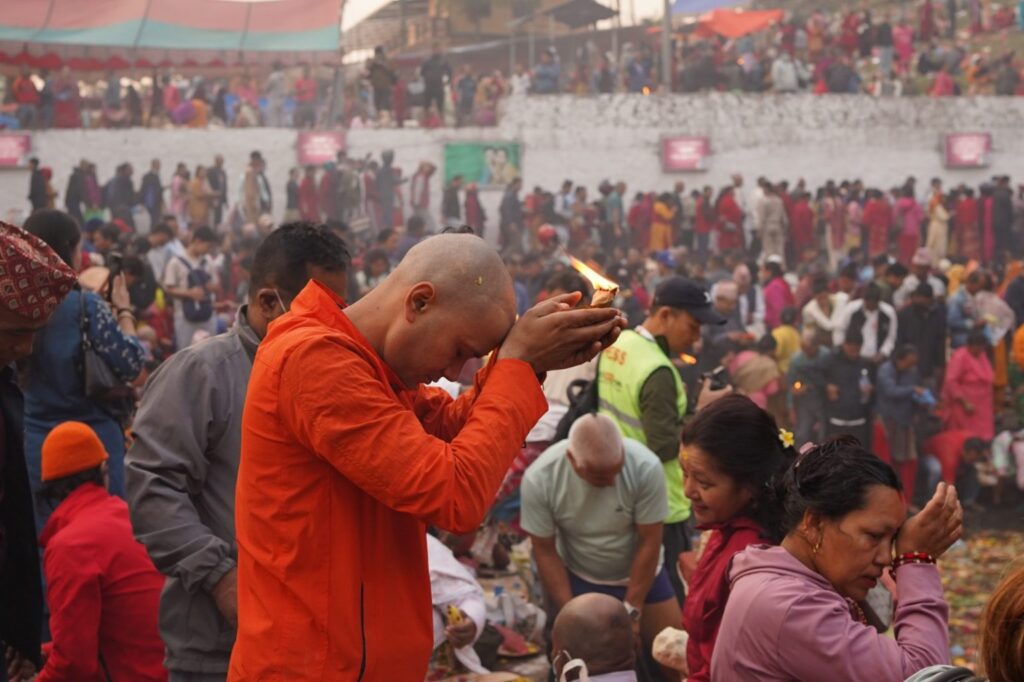
According to Shanta Udas, the president of the Matatirtha Conservation and Development Organization, all arrangements have been made to ensure a smooth and organized flow of pilgrims to the pond for their ritual baths. It is believed that by performing the rituals at Matatirtha Kund, sons and daughters can be freed from any perceived debt to their departed mothers.
On this day, the celebration takes on a deep cultural significance. It is seen as a day to express reverence and respect to mothers, whose status is often considered even more revered than fathers in traditional scriptures. The occasion is marked by devotional offerings and the seeking of blessings, not only from living mothers but also from the memory of deceased mothers.
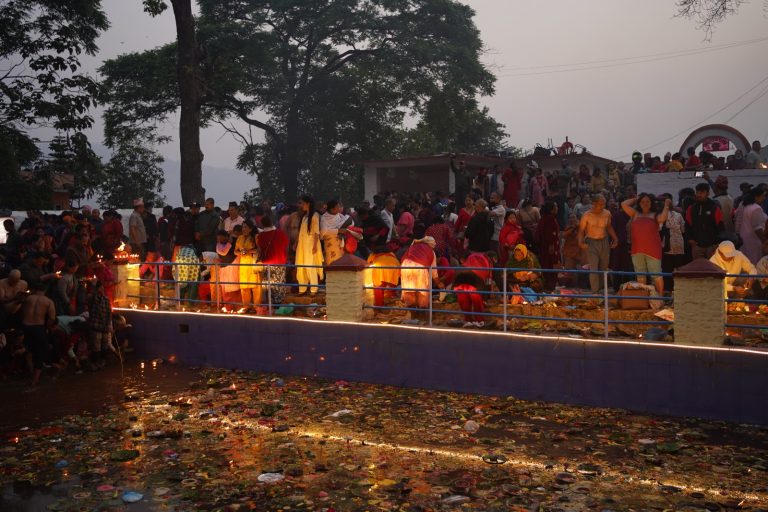
Devotees, especially sons and daughters, traditionally wake up early to take a bath, dress in new clothes, and offer special food to their mothers, including sweets and nourishing dishes, seeking their blessings in return. For those who have lost their mothers, the tradition involves performing rituals such as Tarpan and Pinda Daan, as a way of honoring and remembering the sacrifices made by their departed mothers. The ritual also includes offering food and donations to priests, symbolizing respect for their mothers’ contributions.
This year, the celebration has been particularly vibrant, with numerous devotees pouring into the area from across Kathmandu. The Chandragiri Municipality has also declared a public holiday to mark the occasion, allowing residents to participate in the festivities and religious observances.
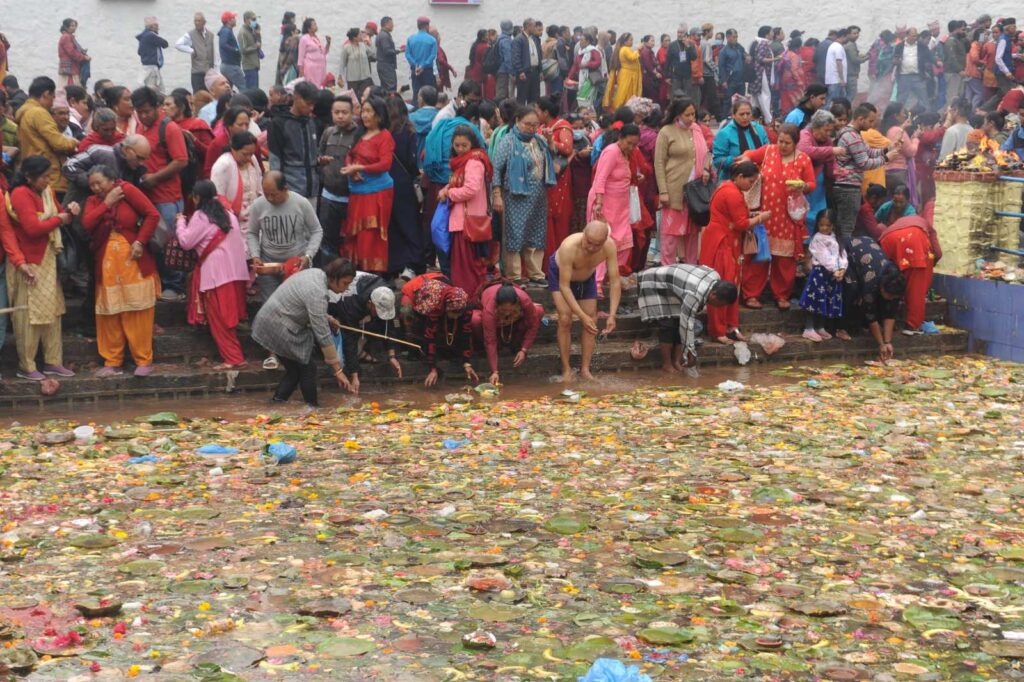
The importance of this ritual is also highlighted by the strong cultural belief that honoring the mother brings prosperity and spiritual wellbeing. The matriarchal figures are deeply ingrained in Nepali society as symbols of love, sacrifice, and protection, which is why this day holds such profound significance.
The Matatirtha Aunsi festival is not only a time for religious observance but also a celebration of the eternal bond between mother and child. Whether a mother is living or departed, this ritual is a moment for children to express gratitude and devotion, ensuring the continuity of this revered tradition for generations to come.
